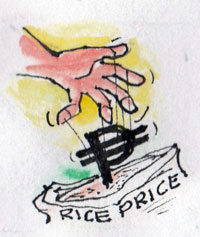The topics below may be relevant to your daily activities, especially those which involve business law, labor law, and other legal areas of your business.
Business Law and Labor Law Updates
DOCTRINE OF STRICT COMPLIANCE

-
Under Doctrine of Strict Compliance, the documents tendered by the seller/beneficiary must strictly conform to the terms of the Letters of Credit.
-
The tender of documents must include all documents required by the letter. It is not a question of whether or not it is fair or equitable to require submission of documents but whether or not the documents were agreed upon.
-
Correspondent bank which departs from what has been stipulated under the Letters of Credit acts on its own risk and may not thereafter be able to recover from the buyer or the issuing bank, as the case may be, the money thus paid to the beneficiary.
FRAUD EXCEPTION PRINCIPLE

-
The “independence principle” assures the seller or the beneficiary of prompt payment independent of any breach of the main contract and precludes the issuing bank from determining whether the main contract is actually accomplished or not.
-
The “Fraud Exception Principle” is the exception to the Independence Principle.
-
Under the fraud exception principle, the beneficiary may be enjoined from collecting on the letter of credit if the beneficiary committed fraud by substituting fraudulent documents even if on their face the documents complied with the requirements.
PARTIES TO A LETTER OF CREDIT
![]()
-
The Applicant/Buyer/Importer/Account Party procures the letter of credit and purchases the goods.
-
The Issuing Bank, whether a paying bank or not, issues the Letter of Credit and undertakes to pay the seller upon receipt of the draft and proper documents of title from the seller.
-
Beneficiary/Seller/Exporter is one in whose favor the instrument is executed.
ON ILLEGAL ACTS OF PRICE MANIPULATION

-
Accumulation of any basic commodity beyond its inventory level is hoarding
-
Selling of any basic necessity or prime commodity at a price grossly in excess of its true worth is profiteering .
-
Hoarding, profiteering, and cartel which is an agreement to artificially and unreasonably increase or manipulate the price of any basic necessity or prime commodity are not allowed



I needed to thank you for this good read!! I certainly enjoyed every bit of it. I have you book marked to look at new things you post
Lovely just what I was searching for. Thanks to the author for taking his time on this one.
Your place is valueble for me. Thanks!…
There’s certainly a great deal to know about this issue. I love all the points you
have made.